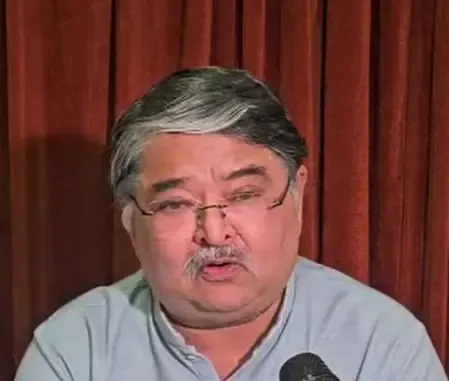Rajasthan: Coaching Regulation Bill Referred to Select Committee, Assembly Sessions Adjourned Indefinitely

Synopsis
Key Takeaways
- Rajasthan Coaching Bill met with fierce opposition.
- Select Committee to review the controversial bill.
- BJP leaders highlighted missing central guidelines.
- Concerns raised over job losses in the coaching sector.
- Assembly passed a bill to repeal 45 outdated laws.
Jaipur, March 24 (NationPress) The Rajasthan Coaching Centres (Control and Regulation Bill 2025) has faced significant opposition in the Assembly, leading to its referral to the Select Committee.
After a vigorous debate, the Assembly sessions have been suspended indefinitely. Members of the BJP expressed their discontent, particularly regarding various provisions of the bill.
BJP MLA Gopal Sharma raised concerns about the absence of central guidelines in the legislation.
He stated, "If we have a double-engine government, we should progress collectively. The central guidelines indicate that coaching should only be available to students older than 16. Why is this crucial provision absent from the bill?"
During the discussions, Congress MLA Harish Chaudhary remarked: "One Deputy CM allocated ₹100 crore for IIFA. Now, the second Deputy CM should invest ₹100 crore in improving the state's examination framework to support students and youth," he added, without mentioning Premchand Bairwa.
Senior BJP figure Kalicharan Saraf insisted that the bill be reviewed by the Select Committee.
"If this bill is enacted in its present form, coaching institutions will relocate from Rajasthan, resulting in job losses for thousands of educators. A sector valued at ₹60,000 crore will diminish, and bureaucratic control will increase," he cautioned.
Saraf stressed the importance of broader consultations. "Before the bill's implementation, discussions should involve coaching centres, students, educators, and the community. The proposed state and district committees lack representation from voluntary organizations and the judiciary. A public representative must also be included," he expressed.
He also highlighted that the central guidelines recommended notifying parents if a student is absent for two consecutive days—a provision that is absent in this bill.
"Rushing to pass this bill is ill-advised," he warned.
In other developments, the Rajasthan Assembly approved the Rajasthan Laws Repealing Bill 2025, which nullified 45 outdated laws, including 37 pertaining to the Panchayati Raj.
Among the repealed laws were the Bikaner State District Board Amendment Act of 1952 and the Bikaner Municipal Amendment Act of 1952.
The Assembly also adopted the Rajasthan Laws Amendment Bill 2025, which removes the necessity of appointing judges as the Director of Law in development authorities and Urban Improvement Trusts (UITs).
Previously, only district judges held these roles. With the new provision, the government will now have discretion in making these appointments.









